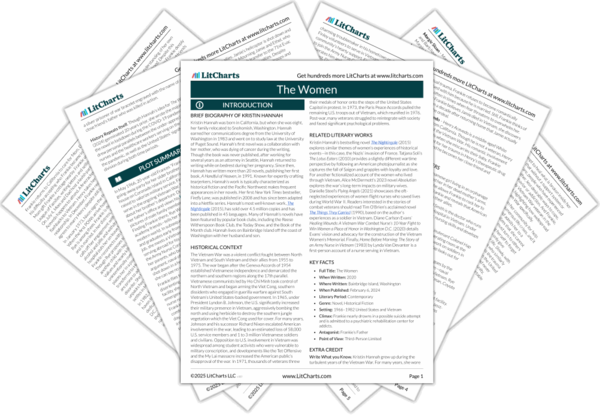Before she even arrives at her workplace, Frankie is traumatized by the omnipresent violence. Patty’s assertion that the 36th Evac Hospital is safer than other posts, then, is little comfort. That the medical staff abbreviates the phrase “very seriously injured” implies they tend to such wounds often. Patty’s efficient introduction and abrupt abandonment demonstrate that constant vigilance is necessary in this world, as casualties happen quickly and help is always needed. In other words, providing medical care is prioritized over everything else, including social niceties. Frankie’s regret suggests she feels out of place and overwhelmed despite her prior enthusiasm.


